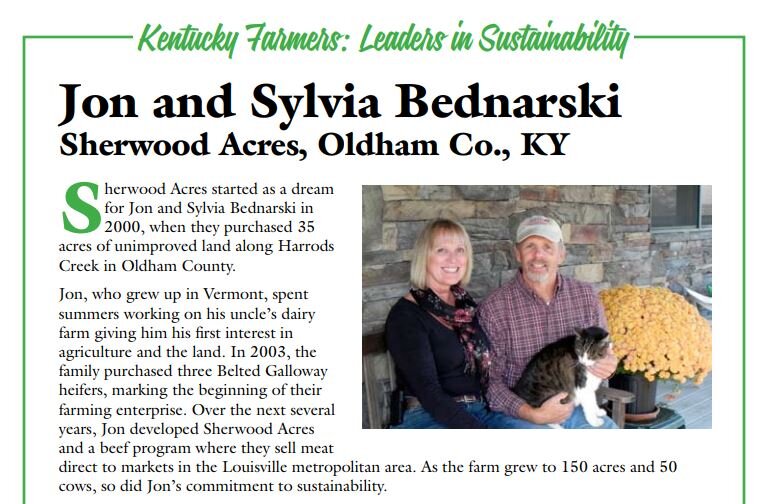Reading: Leaders in Sustainability
Sustainability is a hot topic these days, especially when it relates to agriculture. We hope the following resources will help students understand all aspects of sustainability, and the measures the Kentucky agriculture community is taking to ensure our natural resources are cared for today and tomorrow.
Kentucky Farmers: Leaders in Sustainability
Our Kentucky farmers believe there is nothing more important than caring for our environment and conserving natural resources as they want to ensure the land will continue producing food, fiber, and energy for many years to come.
Farmers across the Bluegrass State are utilizing a number of sustainability practices to care for our land and water. We wanted to highlight those efforts by sharing the profiles of several farmers who were named finalists for the Leopold Conservation Award in Kentucky. This award program was initiated in 2013.
View Google Classroom-ready Farmer Profiles, Videos, and Google Quizzes - Grades 5+
Be sure to copy them to your Google Classroom or Drive before sharing with your students
PDF Versions of the reading sheets and comprehension worksheets are also located in the Google Drive folder.
CCRS Literacy Task
How are Kentucky farmers protecting our land wand water? After reading the farmer profiles and informational texts and/or watching the videos, write an essay in which you describe how Kentucky farmers are currently using sustainable methods to grow food, fiber, and energy. Support your article with evidence from the texts and videos.
Kentucky Leopold Conservation Award Winner - Mark Turner, Livermore, KY
DID YOU KNOW that NO-TILL crop farming (the practice of not breaking the soil before planting) has its roots in Kentucky?
Christian County farmer Harry Young, Jr. planted the first commercial no-till crop 50 years ago. While the goal was to reduce soil erosion, additional benefits included reduced fuel use, increased organic matter and water holding capacity, and higher soil quality. Today, about 70 percent of the state’s wheat acreage, 50 percent of the corn acreage, and 80 percent of soybean acreage is no-till.
Read the article: No-Till Agriculture: A Legacy Born in Kentucky
DID YOU KNOW that all Kentucky farms are required to develop and use an Agricultural Water Quality Plan?
The Kentucky General Assembly passed the Kentucky Agricultural Water Quality Act in 1994 to protect surface and groundwater resources from pollution as a result of agriculture and silviculture (forestry) activities. The Agricultural Water Quality Act requires all landowner/land users with 10 or more acres being used for agriculture or silviculture operations to develop and implement a water quality plan using best management practices.
Read more about the Kentucky Agricultural Water Quality Act and Plan

